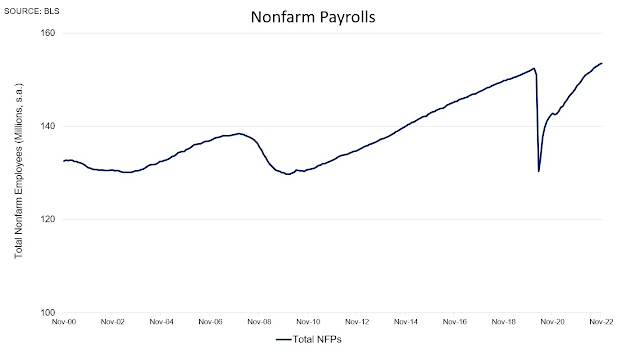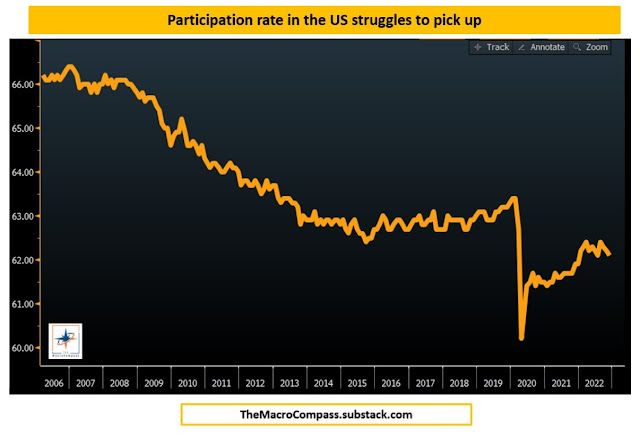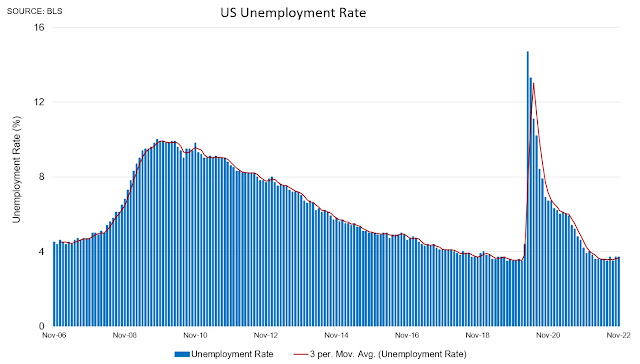US nonfarm payrolls came in better than expected at +263,000 versus market expectations of +200,000.
Revisions trimmed back -23,000 from previous months, but it was a positive headline result.
Hiring momentum has clearly lost pace since 2021, but the labo(u)r supply hasn't come back online in full.
The participation rate ticked down again to 62.1 per cent in November, to remain well below pre-pandemic levels.
The US unemployment rate appears to have bottomed for the cycle at 3.5 per cent in July, but held steady at 3.7 per cent in November.
Looking forward, the indicators are considerably weaker, with tech layoffs beginning to gather a serious head of steam.
The number of long-term unemployed persons is also now increasing.
Perhaps most importantly, however, average hourly earnings increased by 0.5 per cent, to be 5.1 per cent higher over the year, well ahead of market expectations year-on-year.
Thus while the Federal Reserve might look to slow the pace of interest rate increases, there is still too much upwards pressure on employee earnings, and the Funds rate is still likely to head towards 5 per cent.
There was some questioning of survey response rates - and the wide discrepancy between surveys - and there's very little doubt that the economy and hiring is going to soften significantly over the year ahead.
But overall, nothing much to support a pivot here.
---
Australia faces some similar challenges, but the participation rate Down Under has actually been grinding higher - recently to all-time highs - driven by record levels of female participation in the labour force.
Source: ABS
Australia has also seen the immigration tap turned back on at a very brisk pace, which should work to keep downwards pressure on wage price growth.
Indeed at the last count, the wage price index was only a notch above 3 per cent over the year to September.
Almost all of the forward-looking indicators in Australia are easing or falling fast, negating the need for much further monetary tightening.





